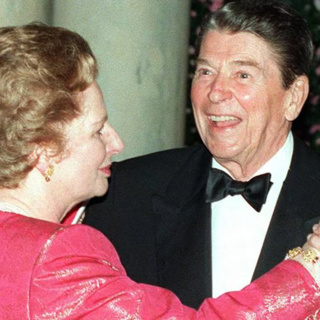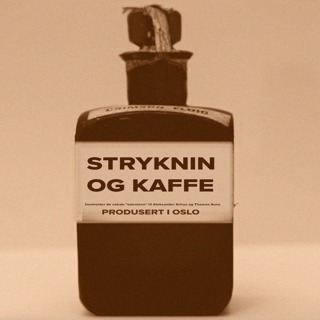
106. Melbourne's first go, Peel's hundred days
It was time for Melbourne. But not a long time, as the king decided to try the old royal trick of getting rid of a prime Minister, the last time a monarch attempted that. So, like Napoleon, Peel got a hundred days. What’s more this episode takes a look at the curious private life of Melbourne, using the word 'curious' in a broad sense, extending as far as an Epstein-like appetite. In addition, we’ll talk about the search for Peel in Rome, in an expedition executed expeditiously, not that Peel showed any gratitude for it, though it ended with him back in London as Prime Minister. Illustration: William Lamb, Second Viscount Melbourne, by Sir Edwin Landseer, at the time he was Prime Minister in 1836. National Portrait Gallery 3050. Music: Bach Partita #2c by J Bu licensed under an Attribution-NonCommercial-No Derivatives (aka Music Sharing) 3.0 International License
4 Sep 202214min

105. Grey, the Poor and the Irish
Another significant measure passed by the Grey government was a lot less creditable than the Great Reform Act or Abolition of Slavery. The 1834 Poor Law mandated the construction of workhouses and set out to achieve the aim of making public assistance to the unemployed, sick or old, a lot less pleasant than work – an aim often pursued by politicians today as well and which it achieved. It wasn’t that which brought Grey down, however. It was that constant bugbear of British governments, Ireland. Emancipation hadn’t quietened tempers among the Catholic Irish, it had merely refocused anger on another issue, the requirement on the Irish, the majority Catholic, to pay for the support of the Church of Ireland, the equivalent in the island of the Church of England, which was Protestant and immensely wealthy. The effort to do something about that grievance, however, opened splits in the Cabinet, and the resignation of Ministers. In the end, that culminated in the resignation of the Prime Minister himself. Earl Grey was gone. Illustration: Cartoon of the interior of a Workhouse. Public Domain Music: Bach Partita #2c by J Bu licensed under an Attribution-NonCommercial-No Derivatives (aka Music Sharing) 3.0 International License
28 Aug 202214min

104. Votes to the people. Freedom to the slaves. Up to a point...
Just how great was the Great Reform Act? It was passed in an atmosphere that came close to being revolutionary. That drove the passage of the Act. It didn’t, however, make it a revolutionary Act. On the contrary, its aim was much more to head off revolution. Indeed, its entrenchment of landowning interests in the counties, and its extension of the franchise to the middle class but not to workers, it can be seen as an aristocratic act, with only certain provisions taking Britain in a democratic direction. Its immediate impact, though, was substantial. It forced the parties to work far more closely with voters, laying the foundation of the present party system. In turn, that meant parliamentary candidates had to pledge themselves publicly to specific policies. The abolition of slavery was the major one at the first election after the Act. It was carried, the second great achievement of Grey’s government, though the its handling of compensation, specifically who received it and who didn’t, leaves rather a lot to be desired. Illustration: Slaves cutting sugar cane in Jamais. Public Domain Music: Bach Partita #2c by J Bu licensed under an Attribution-NonCommercial-No Derivatives (aka Music Sharing) 3.0 International License
21 Aug 202214min

103. Great Reform
The shift from Tories to Whigs in government in 1830 was dramatic enough, but nothing like as dramatic as the changes that had taken place in Britain as a nation. Both the impact of the Industrial Revolution, creating large new middle and working classes, and the continued decline in the power of the throne, meant that there was a growing and eventually irresistible demand for new groups of people to have a say in power, and that meant in Parliament. That didn’t, however, make Reform a smooth process. There had to be three attempts to get the Reform Act passed, accompanied by a lot of unrest, as well as another General Election which gave Earl Grey, and the Reform movement he led, a huge majority in the House of Commons. Even so, the King got in the way, and the House of Lords did what it could to block the Act or leave it toothless. But, in a further measure of their own increasing powerlessness, they ultimately couldn’t stop it. Britain at last took its first step in Parliamentary reform when the Great Reform Act was passed in 1832. Illustration: Painting by W J Müller of the burning of the Bishop's Palace in Bristol, October 1831, from https://www.brh.org.uk/site/articles/bristol-1831-the-queens-square-uprising/ Music: Bach Partita #2c by J Bu licensed under an Attribution-NonCommercial-No Derivatives (aka Music Sharing) 3.0 International License
14 Aug 202214min

102. Aristocrats in pursuit of reform
Just who were these Whigs? It turns out that, though theirs would be a government having to undertake reform, in its make-up it would be the most aristocratic of the century. Since the biggest obstacle to reform were the aristocrats and their acolytes, that was a tad ironic. The problem was that the pressure to do something about the condition of the poor was becoming irresistible. And there was increasing awareness that if change was needed, it now had to come from Parliament. Royal power was continuing to fade as Parliament’s grew. That just made it all the more urgent to get some kind of voice there. Illustration: Sir George Hayter, The House of Commons, 1833, during Earl Grey’s Government. National Portrait Gallery 54 Music: Bach Partita #2c by J Bu licensed under an Attribution-NonCommercial-No Derivatives (aka Music Sharing) 3.0 International License
7 Aug 202214min

101. The Whigs are back
It had been 46 years. In all that time, apart from the 14 months when they had led the Ministry of all the Talents in 1806-1807, the Whigs had been excluded from power. But in 1830, they at last came back. A lot of that was down to the divisions in the Tory Party – now increasingly called the Tory Party again, even by its members – which under the pressure of civil reform (Emancipation of Protestant Dissenters and then the even more historic Emancipation of Catholics) and economic difficulties, had begun to split into Liberal Tory and High Tory wings. George IV died. William IV took over. Wellington mishandled the Commons. And the Whigs took over. With Reform of Parliament the great pending question on the agenda. Illustration: Charles Grey, Second Earl Grey. Based on a mid-19th century work by Sir Thomas Lawrence. National Portrait Gallery 1190 Music: Bach Partita #2c by J Bu licensed under an Attribution-NonCommercial-No Derivatives (aka Music Sharing) 3.0 International License
31 Jul 202214min

100. From upstart to superpower
To greet our reaching 100 episodes, we’re going to pause and recap how far we’ve come. When we started, England, was just a small country on the edge of Europe, trying to punch above its weight, giving far more powerful nations – notably Spain – a bad time. But then it grew, sorting some of its constitutional problems as it went, often painfully, as in the Civil Wars and the execution of the King. In the course of the eighteenth century, it fought war after war against France, and also kept going with its constitutional progress, reducing the power of the monarch in relation to parliament. Military advances and constitutional change were, however, also accompanied by another and even more powerful development: the emergence of an environment encouraging business, backed by a major, reliable and effective financial system, including a well-run stock market, which produced the conditions for technical and scientific innovation to launch the industrial revolution. By the early nineteenth century, England, which had merged first with Scotland and then with Ireland to become the leading nation of the United Kingdom, was an economic powerhouse. With victory in the final war against France, it had become the global superpower of its time. A long way from the upstart snapping at the heels of grownups at the top table we saw back in episode 1… Music: Bach Partita #2c by J Bu licensed under an Attribution-NonCommercial-No Derivatives (aka Music Sharing) 3.0 International License
24 Jul 202214min

99. Cops and Catholics
The cops are what Robert Peel’s best remembered for. Thanks to him, the world’s first professional, civilian police force was launched. It hasn’t always lived up to initial expectations, with London’s Metropolitan Police going through particularly difficult times just now but, boy, it’s an initiative that has left its mark. And not just in Britain. There was controversy about setting up a police force, with some resisting the idea of paying people to keep an eye on them and make sure they behaved. To libertarians, that felt like an incursion on basic freedoms. But far more controversial still was the extension of political rights to non-Anglican religious groups. First, it was dissident Protestants, and Peel had to change his tune to support their emancipation. But next it was the Catholics, and his U-turn was even more shocking. Nicknamed ‘Orange Peel’ for is backing for the Protestant (Orange) cause, it was astonishing to see him leading the charge for Catholic Emancipation in 1829. But Peel's dramatic changes of view would astonish a lot of people, a lot of times in his career. Illustration: Photograph of a ‘Peeler’ of the 1850s. Public domain (PD-US-expired). Music: Bach Partita #2c by J Bu licensed under an Attribution-NonCommercial-No Derivatives (aka Music Sharing) 3.0 International License
17 Jul 202214min





















